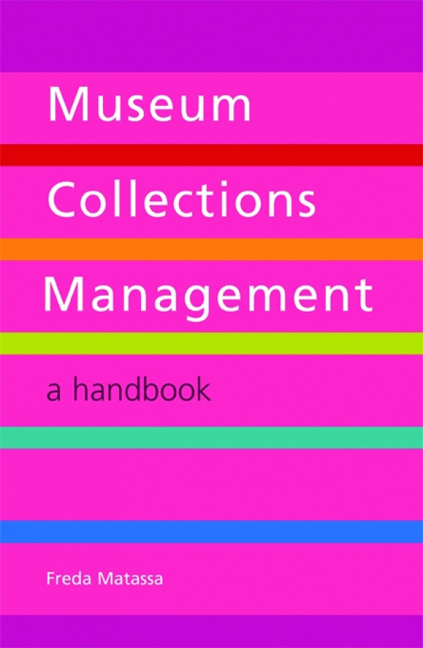11 - Access
from Part 2 - Collections management: processes
Published online by Cambridge University Press: 08 June 2018
Summary
Fundamentals
Most museums welcome the chance to share their collections as widely as possible. Access to objects that are not on display is fundamental to increasing visitors’ opportunities to enjoy and learn about cultural collections. Apart from exhibitions, museums can make their objects available to the public in other ways such as the internet, special events, publications, talks and educational programmes. Public access to stored objects can include the following:
• study room or reading room where the objects are brought to the visitor
• visits to storerooms where the visitor is escorted to the object
• virtual access in the museum and via the internet.
Most museums, and public museums in particular, have access to stored collections as part of their remit. They have a responsibility to make all objects in their care available for visitors. Information on access arrangements should be readily available. Receiving visitors to storerooms and study rooms, however, can be significant in terms of time and staff resources. It is therefore important for a museum to have a policy on access to stored collections and to be clear about the services it can provide.
Options for providing access
Allowing access to stored items is part of the public service of great collections and should be undertaken with the care, safety and comfort of the visitor in mind. Information on how to request a visit and on opening and closing hours should be clearly displayed on the premises, in publications and online. Access for visually impaired and disabled visitors should be part of the overall access remit and should be in line with disability access legislation and guidelines, such as those provided by the MLA.
There is, of course, a careful balance to be achieved between care of the objects and access by the public. Close collaboration between curators and conservators is needed in order to understand, agree on and devise an access policy. If there is no in‑house expertise on collections care, advice should be taken on how to keep the stored collection safe while allowing maximum public access. Each collection is unique and has different challenges and resources. Some items may not be suitable for handling, even under supervision, while others should be kept in controlled environmental conditions or are difficult to unpack, move, or prepare for visitors.
- Type
- Chapter
- Information
- Museum Collections Management , pp. 229 - 244Publisher: FacetPrint publication year: 2011



